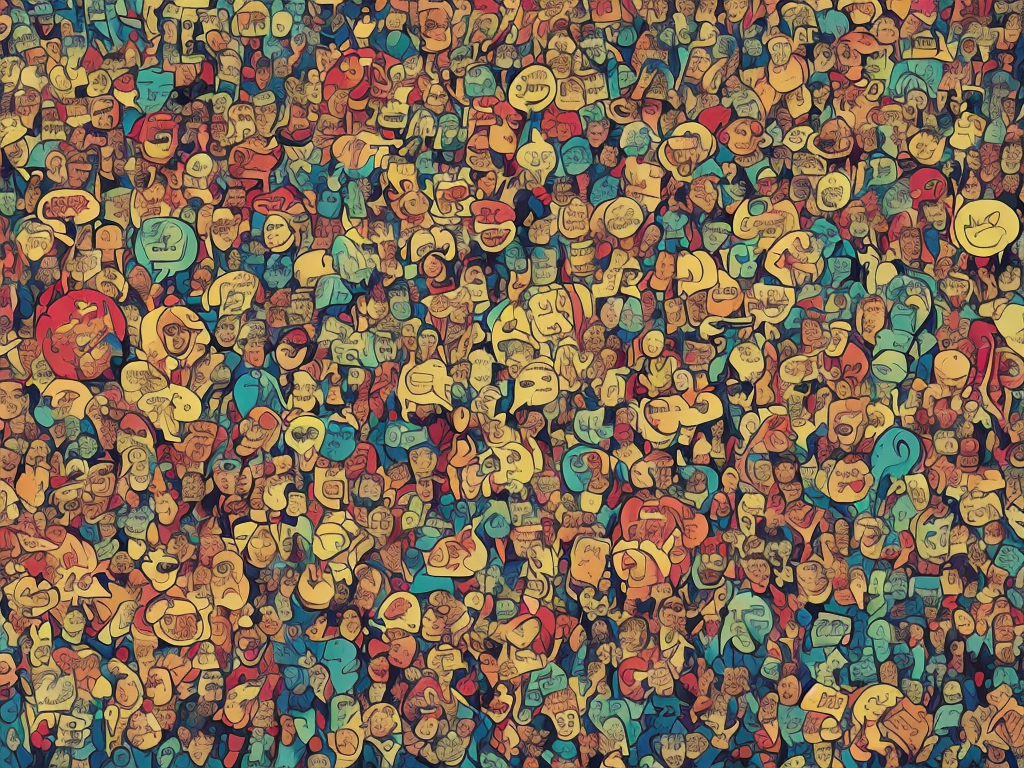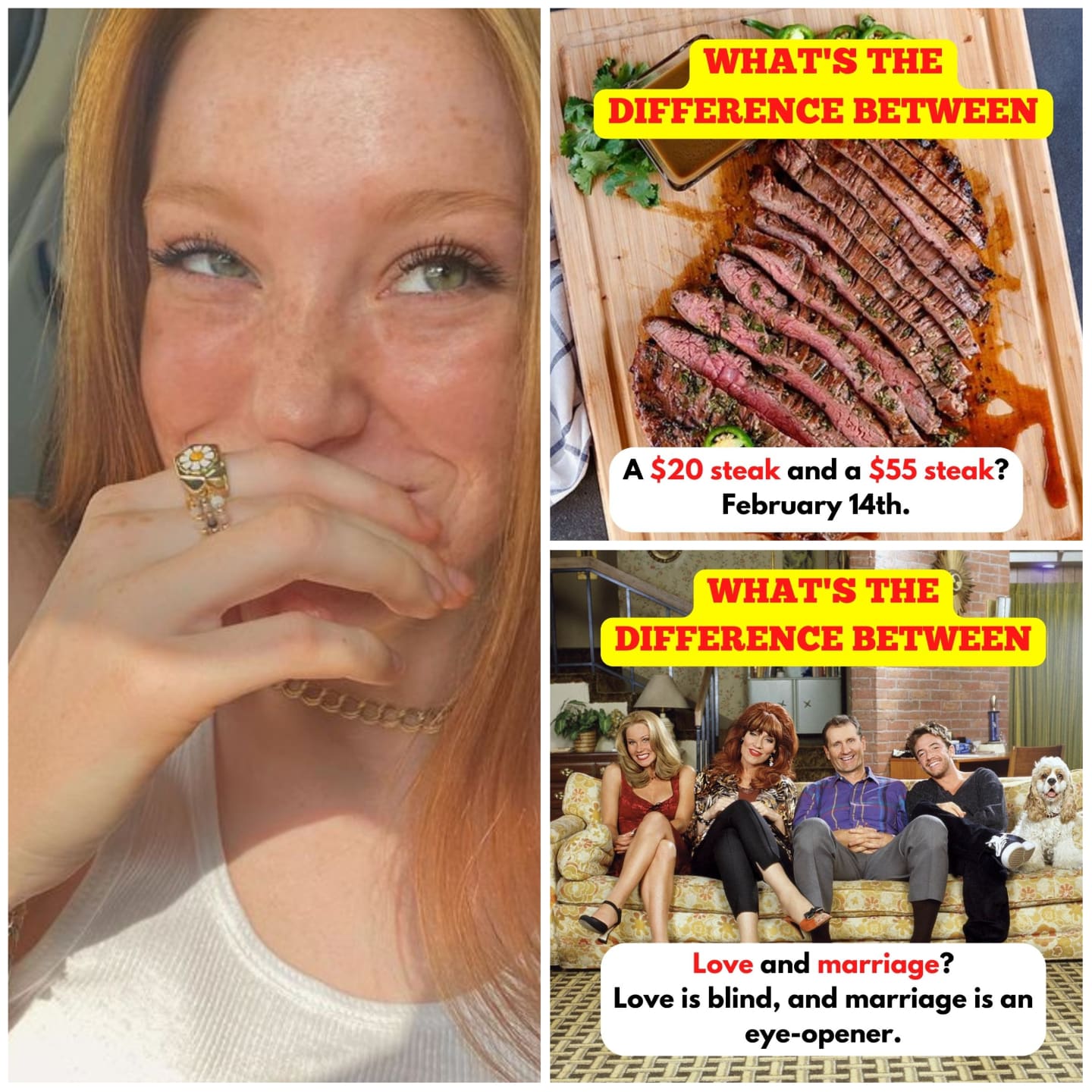There's something truly special about a good chuckle, a sudden burst of amusement that lightens the day, and you know, some of the very best ways to get that feeling come from a specific kind of playful inquiry. These are the ones that ask about the way two things are not quite the same, often leading to a delightful twist that makes you smile. It's almost as if they invite your mind to play a little game, comparing things you might not otherwise consider together, which is pretty fun, in a way.
From jokes that make you think with a quick wit to those that are a little bit silly or even those that are slightly risqué, this style of joke has a remarkable ability to tickle a wide range of funny bones. They can be full of sharp observations, or perhaps they rely on a bit of naughtiness to get their point across, but either way, they aim to entertain. We're talking about those specific questions that begin with "what's the difference between," which, frankly, are a staple of lighthearted conversation.
You might find yourself wondering just what it is that makes these particular forms of humor so widely appealing, and that, is that, exactly what we will explore. We'll look at how these jokes pull off their comedic feats, whether they're using clever wordplay or just a simple, unexpected comparison to get a reaction. It's about understanding the heart of what makes people grin, basically, when they hear these kinds of playful riddles.
Table of Contents
- What Makes "What the Difference Between Jokes" So Funny?
- The Art of Clever Comparisons in "What the Difference Between Jokes"
- How Do "What the Difference Between Jokes" Work?
- The Role of Wordplay in "What the Difference Between Jokes"
- Are All "What the Difference Between Jokes" For Everyone?
- Exploring the Idea of Difference in "What the Difference Between Jokes"
- What is the Essence of Being Unlike in "What the Difference Between Jokes"?
- The Many Shades of Unlikeness in "What the Difference Between Jokes"
What Makes "What the Difference Between Jokes" So Funny?
The appeal of "what's the difference between jokes" often comes from their ability to surprise us with an unexpected connection, or perhaps a sudden disconnect, between two things we might not usually put together. It's that little mental jolt, you know, when the answer clicks, that really gets a reaction. These jokes often play on our expectations, setting up a comparison that seems straightforward, only to deliver a punchline that flips our perception on its head, which is pretty clever, honestly.
They can bring about laughter through various means, from a bit of physical comedy in words to a sharp, biting comment, or even a more gentle, subtle kind of amusement. What one person finds amusing at a given moment really depends on their own way of looking at things. So, too it's almost a personal experience, shaped by what you find relatable or just plain silly, which makes them quite versatile, as a matter of fact.
The Art of Clever Comparisons in "What the Difference Between Jokes"
At their core, these "what's the difference between jokes" are examples of quick-witted humor that use wordplay and a bit of linguistic trickery to create all sorts of funny scenarios. They often rely on words that sound alike but have different meanings, or on phrases that can be interpreted in more than one way, basically. This playfulness with language is a key ingredient in their ability to make people grin, offering a moment of lighthearted fun that, you know, sticks with you.
Consider, for example, the kind of simple, innocent jokes you might hear, like those that ask "what's the difference" or "what do you call" something. These are the building blocks of humor, the kind that get us accustomed to the idea of a setup and a payoff. They teach us to listen for the unexpected twist, the little bit of word magic that transforms an ordinary question into something that causes a giggle, which is quite important, really, for developing a sense of humor.
How Do "What the Difference Between Jokes" Work?
These jokes, at their heart, operate by highlighting a point of unlikeness between two items, ideas, or people that are presented as if they should be similar, or at least comparable. The humor often arises from the sudden revelation of this unlikeness, especially when it's something unexpected or a bit absurd. It’s like a little puzzle for your brain, you know, where the pieces fit together in a way you didn't see coming, which can be very satisfying.
For instance, think about the classic "what's the difference between a talking politician and a pencil?" The answer, "the pencil has a point," plays on the double meaning of the word "point." One refers to a sharp tip, the other to a clear purpose or stance. This kind of word game is pretty common in "what the difference between jokes," and it’s a big part of why they can be so effective at getting a laugh, honestly.
The Role of Wordplay in "What the Difference Between Jokes"
Wordplay is, in some respects, the engine that drives many of these "what the difference between jokes." It's the clever use of words that have multiple meanings, or words that sound similar but are spelled differently, to create a surprising or amusing connection. This linguistic gymnastics invites the listener to engage with the language in a playful manner, which is, you know, a very human thing to do. It’s almost like a secret handshake for those who appreciate language's quirks.
When a joke uses a pun, for instance, it's taking advantage of the flexibility of our language. The phrase "play on words" perfectly captures this idea; it's literally playing with the sounds and meanings of words to produce a comedic effect. So, you might find that the best "what the difference between jokes" are those that make you pause for a second, then smile as you recognize the clever trick the words are pulling on your mind, which is quite delightful, really.
Are All "What the Difference Between Jokes" For Everyone?
Not every joke of this type will land with every single person, and that's perfectly fine, you know. Some are made with a younger audience in mind, keeping the content light and simple, focusing on things that children can easily grasp and find funny. These might involve animals or everyday objects, with a gentle kind of humor that encourages a giggle without any complex ideas. It's about providing a moment of pure, innocent amusement, basically.
On the other hand, there are versions of "what the difference between jokes" that are clearly meant for adults. These might touch on more grown-up themes or use more sophisticated wordplay that requires a bit more life experience to appreciate. The humor can be more pointed, perhaps a little bit edgy, or it might rely on shared cultural knowledge that younger people haven't acquired yet. So, it's pretty clear that these jokes have a range, catering to different tastes and age groups, which is a good thing, in fact.
Exploring the Idea of Difference in "What the Difference Between Jokes"
The very word "difference" is central to these jokes, and it points to the quality or state of being unlike or dissimilar. When we ask "what's the difference," we are essentially asking about the ways in which two or more things, which we are putting side by side for comparison, are not the same. This concept is, quite naturally, at the heart of the humor, because the joke often reveals an unlikeness that is both surprising and, in some respects, true.
The idea of difference is, you know, a very general one. It can apply to simple things like variations in color or variations in size. It can also refer to a distinction of degree rather than a distinction of kind, meaning things might be similar but one has more or less of a certain quality. This broad application of the idea of unlikeness allows "what the difference between jokes" to draw comparisons from almost anywhere, which is part of their charm, honestly.
What is the Essence of Being Unlike in "What the Difference Between Jokes"?
The core of what makes something a "difference" in these jokes is the way in which two things are not like each other. It’s about spotting the ways they stand apart, even if they appear similar at first glance. For instance, identical twins might have very few, if any, visual unlikenesses, but a joke could highlight a subtle behavioral or personality distinction that sets them apart. This focus on unlikeness is what gives the joke its spark, you know, that moment of recognition.
This quality of being distinct can be counted or uncounted, and it can refer to the general state of being not the same. For example, a person might need to learn to be more accepting of unlikeness in others. The degree to which one person or item is distinct from another is also a form of difference. So, it's pretty clear that the concept itself is multifaceted, allowing for a rich ground for comedic exploration, as a matter of fact.
The Many Shades of Unlikeness in "What the Difference Between Jokes"
When we talk about things being unlike, we can use words like "discrepancy," "disparity," or "dissimilarity." These terms all point to a perceivable unlikeness, a variation, or a diversity between items. A "discrepancy," for instance, might suggest a lack of agreement or consistency, while "disparity" often implies an unlikeness in status or quality. So, you can see how these subtle distinctions in meaning provide different angles for humor in "what the difference between jokes," which is quite clever.
The most general term, "difference," simply refers to a lack of identity or a degree of unlikeness. This broad definition allows for a wide range of comedic setups. Whether it’s a big unlikeness in sound between a clarinet and an oboe, or a more subtle unlikeness in the way people approach a task, the joke plays on our ability to spot and appreciate these distinctions. It's about finding the humor in the contrast, basically, that makes these jokes so enduringly popular.



